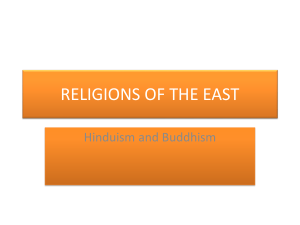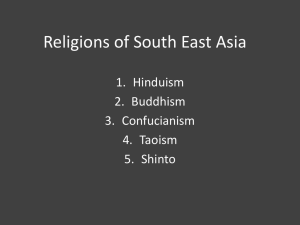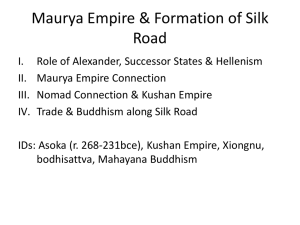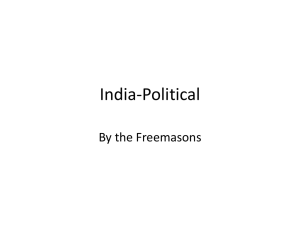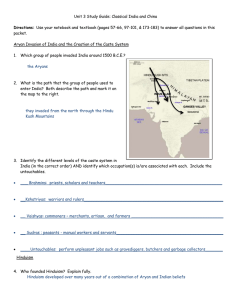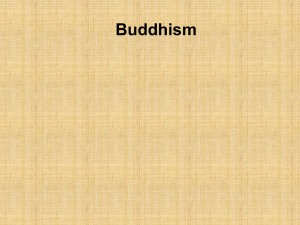Buddhism and the Maurya Empire
advertisement
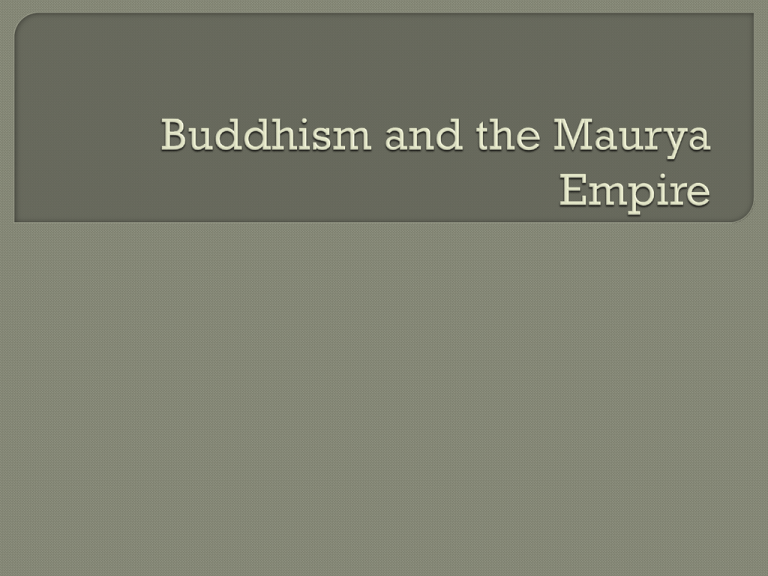
Young Hindu prince who lived around 500BC • Lived life of luxury, never saw sickness/death • Wandered outside palace at age 30 Saw death and sickness Wondered why there was pain in the world Wandered for 7 years to find cause of suffering • Unhappy with answers of Hinduism • Didn’t like idea that only Hindu priests could pass on knowledge Gautama decided to start searching internally • Meditation Under a fig tree Came to understand suffering’s roots after 49 days Spent 45 years travelling and teaching Called the Buddha • “Enlightened One” • His teachings became known as Buddhism Also known as the Eightfold Path • Avoids life of extreme pleasure or unhappiness • People can be free from suffering by avoiding selfishness People do this by being wise, acting properly, and developing their minds Tell truth, avoid violence, all are equal People in caste system like this Monastic life Nirvana • Lasting peace at end of a truly good life • Ends cycle of reincarnation Buddhist monks spread their faith • Hinduism won out in India in long run • Buddhism eventually mostly died out in India Buddhism won out in much of the rest of Asia Buddhism and Hinduism survived side by side • Both said wrong to harm living creatures • Believed in dharma and reincarnation • Some Hindus believed Budha was a reincarnation of Vishnu Buddhists did not follow Hindu’s sacred texts Founded the Maurya Empire • 321 BC in N.E. India Born to poor family, sold into slavery at a young age Became king • Conquered most of northern and central India Arthasastra • Book of advice given to him by an advisor • Taught king needed to have absolute power Dominate people, spy on them Huge army • Thousands of soldiers, 9000 war elephants Economic success • Wealth primarily came from farming • Trade with Greece, Rome and China Improvements: • Irrigation systems • Cleared forests, set up farms, built crafts, dug mines • Roads allowed trade to be easier Afraid for his life • Food taster • Slept in different room each night Left throne to his son • Became monk • Starved himself to death while fasting and praying Son died in 273 BC Chandragupta’s grandson Name means “without sorrow” Expanded empire • Ruled 273-232 BC • Led many battles 261 BC Thousands and thousands died Asoka was filled with sorrow • Gave up war • Freed prisoners, gave back their lands Converted to Buddhism • Forbid animal sacrifice, gave up hunting • Built hospitals • Wells dug every mile alongside roads • Sent missionaries all over Asia Moral writings • Obey parents, speak truth, be tolerant • Had laws along these lines carved on stone pillars India more united at his death than ever before • Maurya Empire Empire declined without his leadership • Territories fought one another • Took 600 years for India to become united again


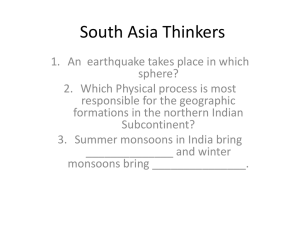
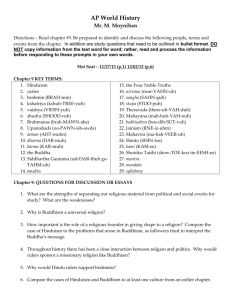
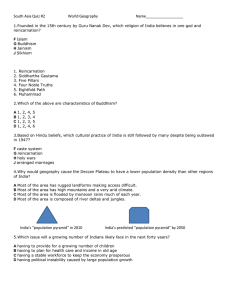
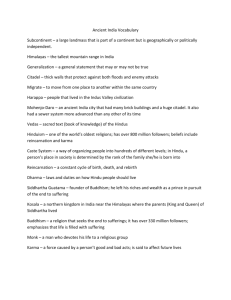

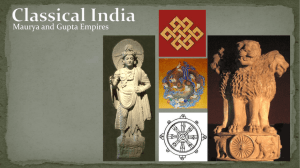
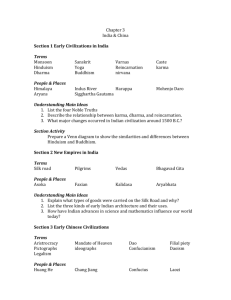
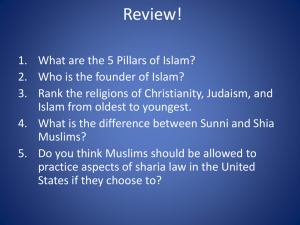
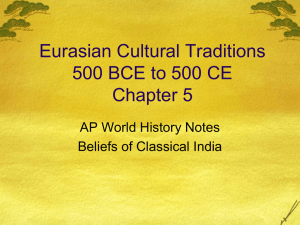
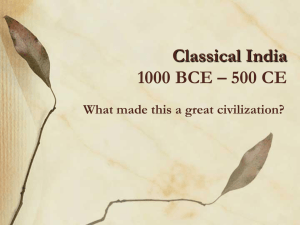
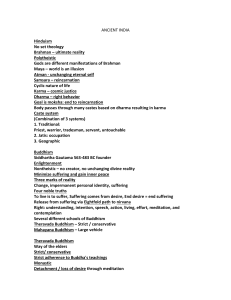
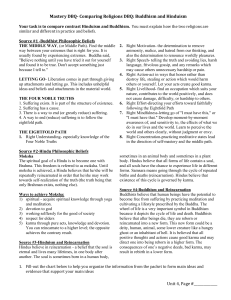

![Notes [314]](http://s2.studylib.net/store/data/010256816_1-b4e84d40ddc26280a14c417e2aba5ab6-300x300.png)
